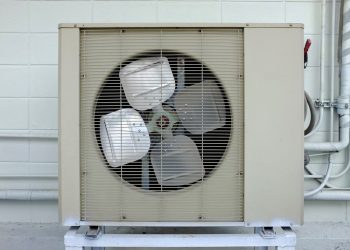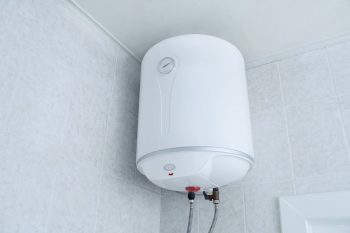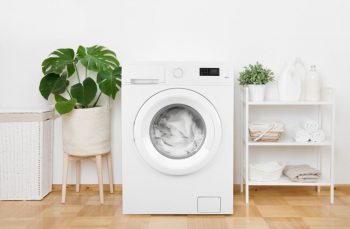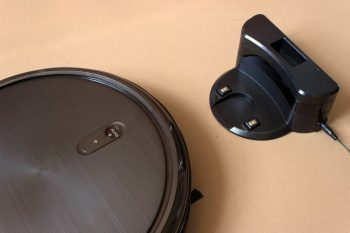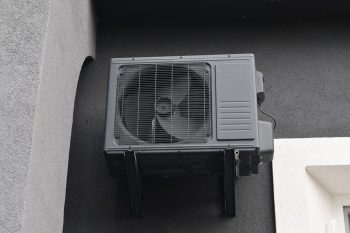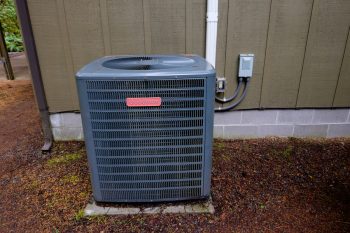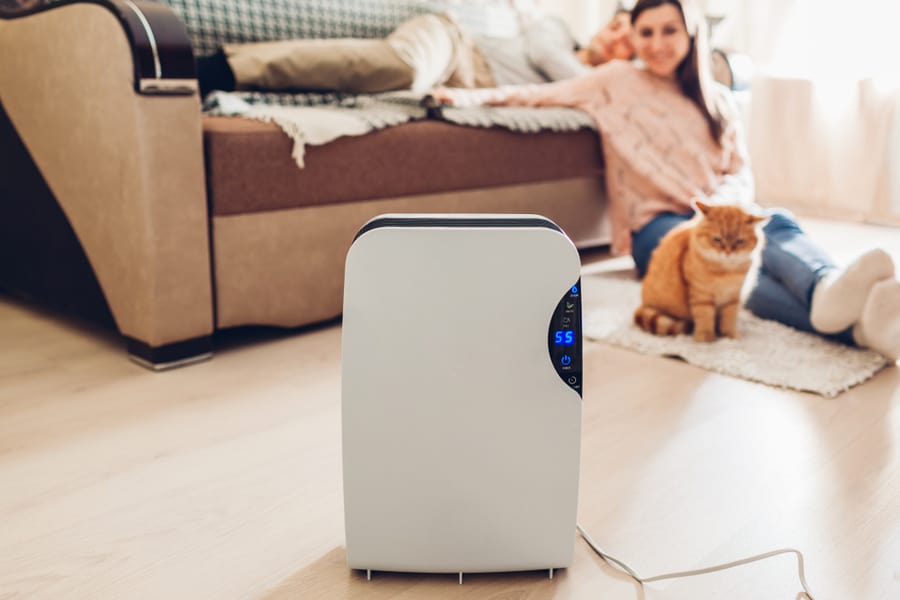
A dehumidifier is an appliance that helps reduce the humidity levels in the air. It works by drawing in the humid air and removing the moisture from it, thus reducing the overall humidity in the room.
You may need to use a dehumidifier in your basement more than in other places since basements are relatively more damp and humid.
People use basements primarily for storage since the dampness and humidity make it difficult for people to stay for longer times.
The following article will tell you when to run a dehumidifier in the basement so that you can have a dry and pleasant basement that you can use for more than storage.
Basements are notorious for being damp and musty.
This is because the underground walls accumulate moisture rapidly. A dehumidifier can be an effective tool for controlling the humidity levels in your basement.
However, you must know the appropriate time to use a dehumidifier. It is best to run a dehumidifier in your basement if:
- Your basement has been flooded or has water damage.
- During summers, when the temperature and humidity are too high.
- Late spring or the rainy season.
- When you are using your basement as living space.
- If you live in a warmer climate with high humidity.
Be sure to follow the manufacturer’s instructions on how to use a dehumidifier.
This article educates you about the appropriate time to use a dehumidifier in your basement and highlights the importance of a prime location for setting up your humidifier. You will also learn about the benefits of using a dehumidifier in your basement.
When To Run a Dehumidifier in Your Basement
It would be best to use a dehumidifier whenever the humidity levels are high. But, if you are new to using dehumidifiers and do not want to waste energy using them purposelessly.
Here is a list of scenarios when you put your dehumidifier to use:
1. After Flooding or Water Damage
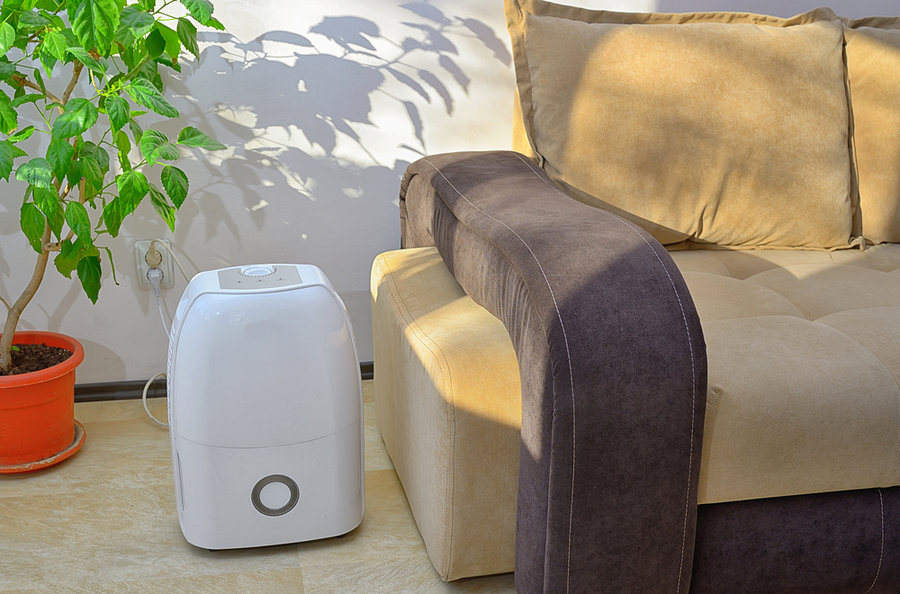
If you have plumbing work done in your basement, you might experience water damage from a pipe leak or burst. In such a scenario, using a dehumidifier in the basement becomes necessary.
A dehumidifier has air filters that can suck the contaminants out of the air. It can easily remove moisture vapors from your basement in case of water damage.
You may need to stay on the humidifier longer if the water damage is severe. Leave the dehumidifier on for several hours every day to completely dry the basement.
In heavy flooding, suck the excess water using a storing suction pump and leave the dehumidifier on. Your basement will dry in a matter of days.
2. During the Summer Season
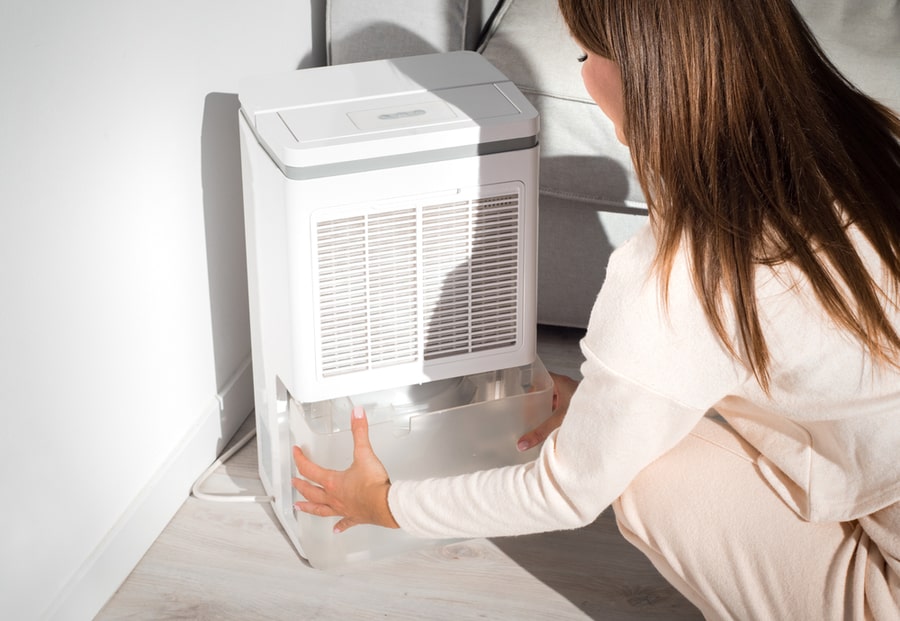
We all love summers, but summers are a time of high humidity, leading to problems like mold and dampness. You may experience breathing problems in an extremely humid and warm environment.
This is where a dehumidifier can come in handy. The dehumidifier will decrease humidity, making your basement dry and breathable. You can control the humidity level of your basement using a dehumidifier.
The recommended setting is to lower the humidity by 30-50%. Basements are typically cooler than the rest of the house since they are shielded from direct sunlight.
Low humidity levels will also help lower the temperature by 1-2 degrees, making the basement more comfortable.
3. Around Late Spring
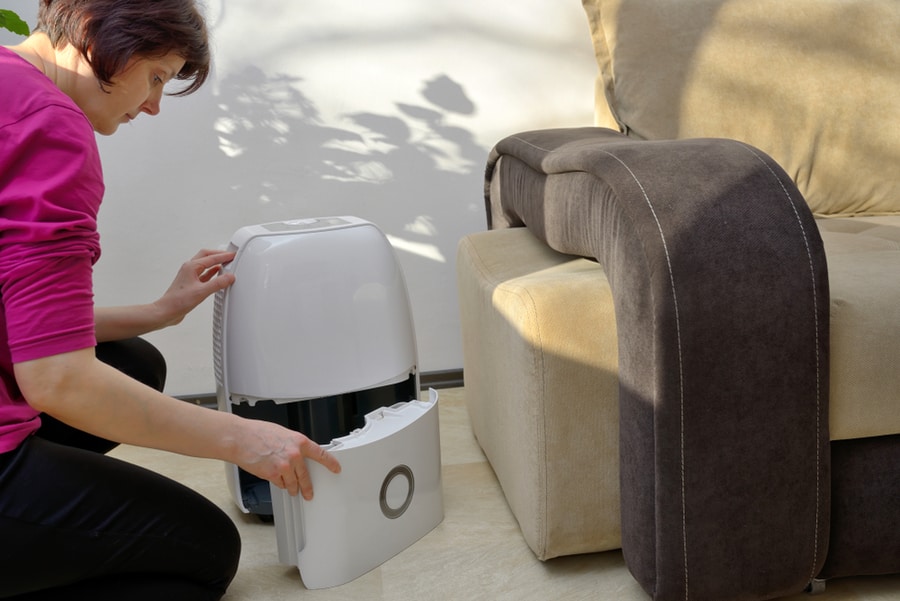
Late spring is the rainy season so the humidity levels will rise. High humidity dampens your basement, releasing unpleasant odors and triggering mold growth.
If you are experiencing such problems, it is the most suitable time to use a dehumidifier in your basement.
Lowering the humidity levels and removing any airborne contaminants will keep the structural integrity of your walls intact.
Be sure to use the dehumidifier at the beginning of autumn too. The dehumidifier will remove any contaminants in the air that could contribute to mold growth, leaving a dry basement for the rest of the season.
4. If You Use Your Basement as a Living Space
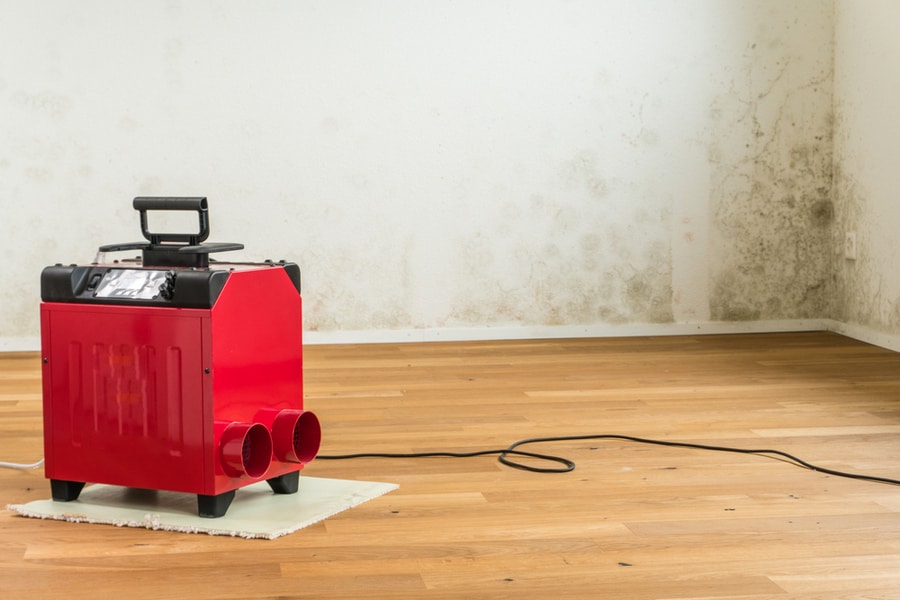
Many people avoid using basements as living spaces due to dampness and musty odor.
But, if you are planning on renovating your basement to be used as a living space or are already using your basement as a permanent living space.
It would help if you used a dehumidifier to remove moisture and odor.
This will make the basement liveable and comfortable. If your basement is dry and mold-free, you can rent it out and turn a profit.
You may also use the basement as a private theater for your family to hang out.
5. If You Live in a High-Humidity Region

Countries close to the equator have very hot and humid climates. If the house feels significantly humid, imagine how humid the basement will be.
If you are from one of those countries, a dehumidifier is a good investment for your home.
Most of the time, when the wallpaper of your basement walls starts to fall off or swell from moisture, it also reaches other areas of your house.
It is best to prevent it from happening than to later spend money on repairs.
Using the dehumidifier in your basement will keep it dry and nice. It will protect any valuable items you have stored in your basement and prevent mold growth which may have infested your home otherwise.
Benefits of Running a Dehumidifier in Your Basement
Using a dehumidifier includes a list of advantages that keep your home or office safe for you and your family.
A few common benefits are mentioned below:
1. Prevents Mold Growth
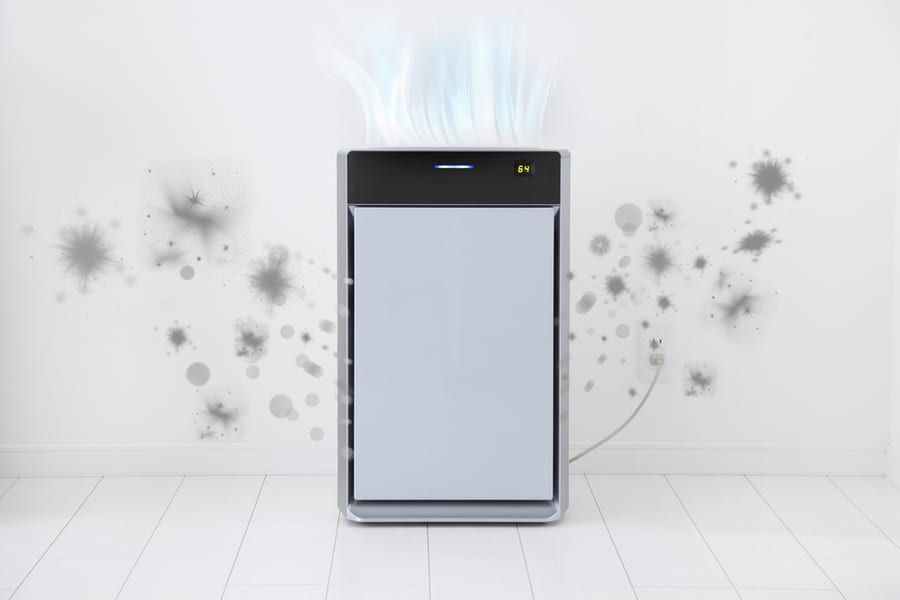
People primarily want to run a dehumidifier in their basements to prevent or kill mold. Mold and mildew thrive in damp environments, making basements an ideal breeding ground for these fungi.
By reducing moisture levels in the air, a dehumidifier can prevent mold and mildew growth from harming both the occupant’s health and the building’s structural strength.
Mold can cause respiratory problems, aggravate allergies, and can even lead to structural damage over time.
2. Improves Air Quality
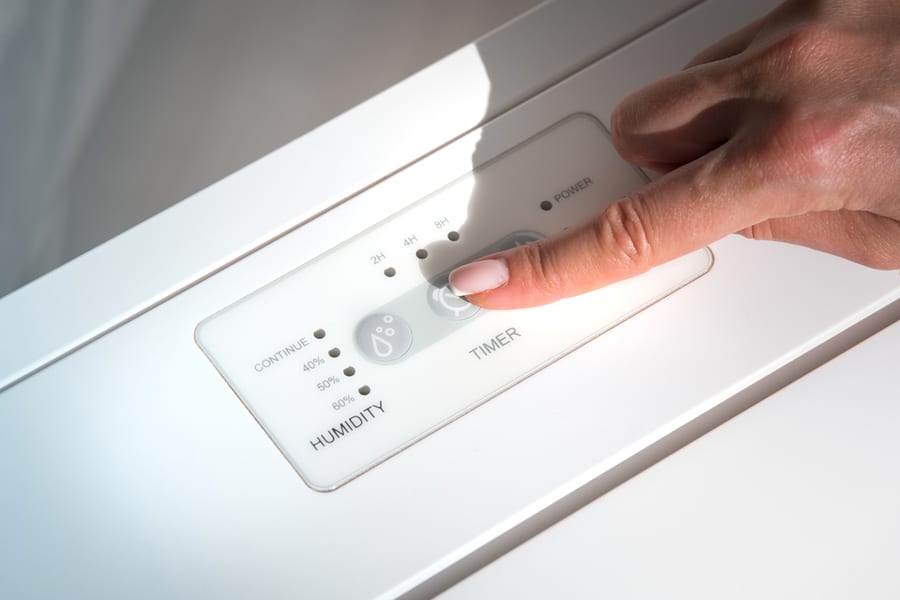
Humidity can impair the air quality and promote the growth of dust mites, which can contribute to allergies and respiratory problems.
A dehumidifier can improve the air quality in a basement by removing excess moisture.
Hence it makes breathing easier and reduces the risk of respiratory issues.
Dehumidifiers with HEPA air filters can also remove microscopic airborne contaminants like dust, mold, or pet dander, improving indoor air quality.
3. Protects Belongings
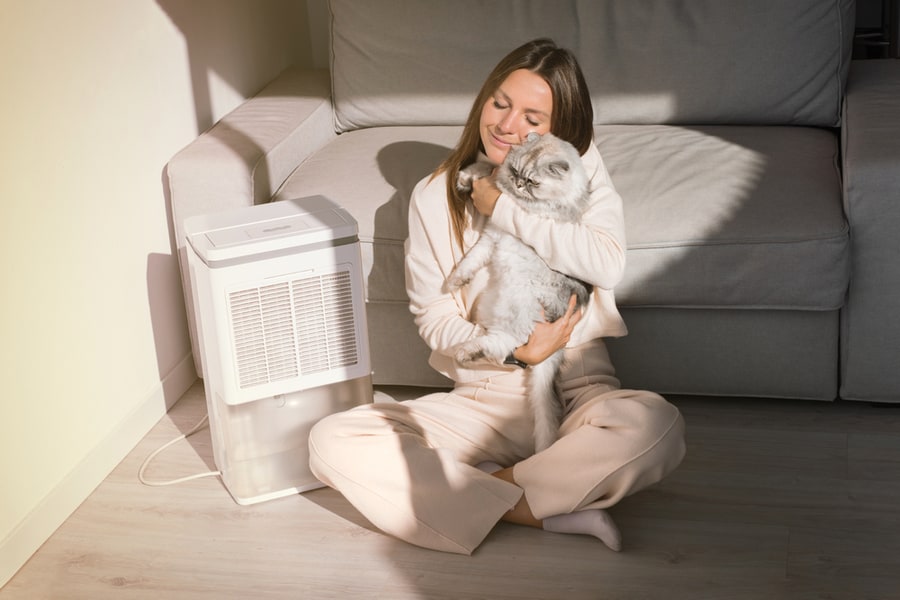
No matter how well-ventilated a basement is, it is still humid compared to the rest of the building. The basement will eventually become damp if you have moved into a newly built house.
Items stored in a damp basement are susceptible to mold, mildew, and rust damage. This can include everything from electronics to furniture to clothing.
Imagine using the basement to store your valuables,s thinking they are safe down there, and realizing they were never safe.
Running a dehumidifier can help protect these belongings and extend their lifespan by reducing the risk of moisture-related damage.
Moreover, lower humidity levels can help prevent warping, cracking, and other damage caused by high moisture levels.
4. Reduces Musty Odors

If your basement is not well-ventilated, the moisture content in the basement will become high. The high moisture content in a stagnant environment causes it to stink.
Damp basements can create unpleasant, musty odors that are difficult to eliminate.
By reducing the air’s moisture levels, a dehumidifier can help eliminate these odors and make the space more comfortable and pleasant.
5. Prevents Pest Infestation

Like mold, pests or other microorganisms find damp basements very hospitable. Many pests, including spiders, cockroaches, centipedes, etc., are attracted to damp environments.
These pests can eat your furniture and penetrate through the ceiling, attacking the rest of your house.
By keeping humidity levels low with a dehumidifier, homeowners can help prevent infestations and keep their basements pest-free.
6. Reduces Energy Cost
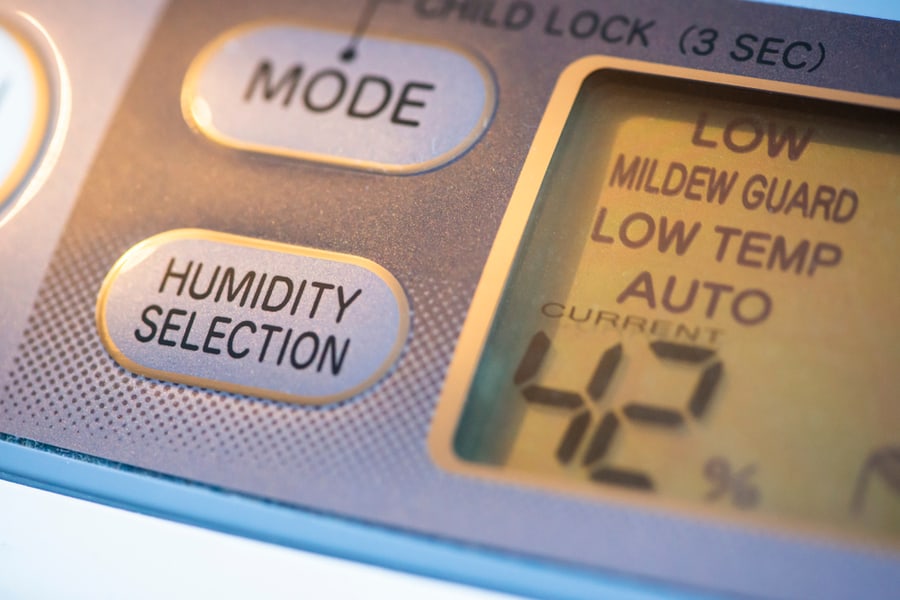
When humidity levels are high, air conditioners have to work harder to cool the air, using more energy that drives up the cost.
By reducing the workload on an air conditioning system, a dehumidifier can help reduce energy costs and keep cooling bills under control.
In colder climates, reducing humidity levels can help prevent condensation and ice buildup on windows, reducing the need for supplemental heating and further reducing energy costs.
Using a dehumidifier reduces your heating and cooling bills, making it great for people looking to save energy and money.
Where To Place Your Dehumidifier in the Basement
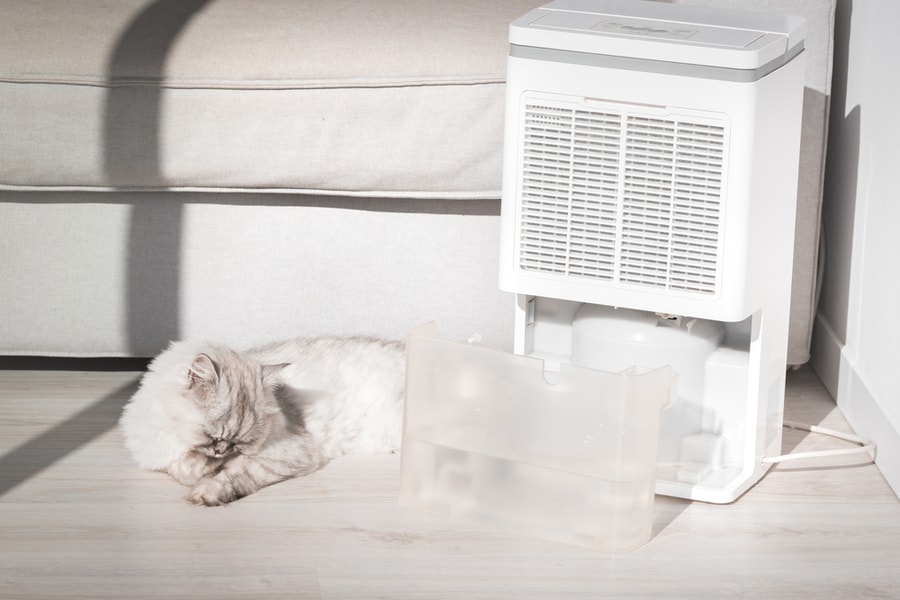
If you want the best results from a dehumidifier in your basement, it is crucial to position it in the right location. The most effective location for a dehumidifier is in the center of the basement, away from the walls and furniture.
This is because moist air tends to gather near walls, so if you position the dehumidifier in the center of the room, it can draw moisture from all corners of the basement.
Additionally, it is important to place the dehumidifier on a raised surface, like a table or shelf, to keep it off the damp basement floor.
Another essential factor to consider when positioning your dehumidifier is the proximity to the nearest electrical outlet. The device must be close enough to the outlet to avoid using an extension cord or power strip.
You may use an extension cord if the power cord of your dehumidifier is too short, but if possible, avoid using extension cords.
If necessary, you can use a heavy-duty extension cord specifically designed for high-powered appliances.
Conclusion
Running a dehumidifier in your basement can benefit you longer, especially if you live in a warm and humid climate. It keeps your basement mold-free and dry, making breathing pleasant and safe for your family.
The best time to use a dehumidifier in your basement is after flooding or water damage, during summers, during the rainy season.
If you live in a high-humidity area and use your basement as a living space.
Using a dehumidifier can prevent mold growth, improve air quality, and save money on heating and cooling bills.
A dehumidifier can be a worthy investment for your home in the longer run.
Frequently Asked Questions
How Would I Know if My Dehumidifier Is Big Enough for My Basement?
Choosing the right size of dehumidifier is essential for achieving optimal results. A larger basement will require a larger dehumidifier with a higher capacity to remove moisture effectively.
In contrast, a smaller basement will require a smaller dehumidifier. If you want to see if your humidifier is appropriate for your basement, place it in the middle and turn it on.
If the basement is still humid after hours of dehumidifier running, you should replace it with a bigger dehumidifier.
Should I Use a Dehumidifier in Winter?
Using a dehumidifier in winter is not typically advised since the air in winter is dry. But if you are experiencing water damage in your basement caused by a leak or pipe burst, using a dehumidifier may help eliminate the vapors and moisture.
Regardless, if you plan on using a dehumidifier in winter, you must consider relative humidity levels and monitor your device to prevent damage.
Dehumidifiers work best if the temperature is between 60°F and 80°F. Using a dehumidifier below 60°F may cause the coils to freeze and break off.
Therefore, if the temperature gets too low and the humidity levels drop considerably, you need to turn off the dehumidifier and not use it until the humidity level increases.

